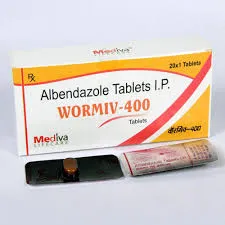- Afrikaans
- Albanian
- Amharic
- Arabic
- Armenian
- Azerbaijani
- Basque
- Belarusian
- Bengali
- Bosnian
- Bulgarian
- Catalan
- Cebuano
- Corsican
- Croatian
- Czech
- Danish
- Dutch
- English
- Esperanto
- Estonian
- Finnish
- French
- Frisian
- Galician
- Georgian
- German
- Greek
- Gujarati
- Haitian Creole
- hausa
- hawaiian
- Hebrew
- Hindi
- Miao
- Hungarian
- Icelandic
- igbo
- Indonesian
- irish
- Italian
- Japanese
- Javanese
- Kannada
- kazakh
- Khmer
- Rwandese
- Korean
- Kurdish
- Kyrgyz
- Lao
- Latin
- Latvian
- Lithuanian
- Luxembourgish
- Macedonian
- Malgashi
- Malay
- Malayalam
- Maltese
- Maori
- Marathi
- Mongolian
- Myanmar
- Nepali
- Norwegian
- Norwegian
- Occitan
- Pashto
- Persian
- Polish
- Portuguese
- Punjabi
- Romanian
- Russian
- Samoan
- Scottish Gaelic
- Serbian
- Sesotho
- Shona
- Sindhi
- Sinhala
- Slovak
- Slovenian
- Somali
- Spanish
- Sundanese
- Swahili
- Swedish
- Tagalog
- Tajik
- Tamil
- Tatar
- Telugu
- Thai
- Turkish
- Turkmen
- Ukrainian
- Urdu
- Uighur
- Uzbek
- Vietnamese
- Welsh
- Bantu
- Yiddish
- Yoruba
- Zulu
9 月 . 29, 2024 03:53 Back to list
Tylosin Injection Applications and Benefits in Poultry Farming Practices
Tylosin Injection for Poultry Uses An Overview
Tylosin is a macrolide antibiotic that is commonly used in veterinary medicine, particularly in the poultry industry. Known for its effectiveness against a variety of bacterial infections, tylosin is often employed to improve the health and productivity of poultry, including chickens, turkeys, and ducks. This article discusses the uses, benefits, and considerations regarding tylosin injection in poultry farming.
What is Tylosin?
Tylosin is derived from the actinobacterium *Streptomyces fradiae* and is primarily used to treat bacterial infections in livestock. Its broad-spectrum antimicrobial activity makes it effective against several pathogenic bacteria, including *Mycoplasma*, which can cause respiratory diseases in poultry. Tylosin is available in various forms, including feed additives, water solubles, and injectable solutions, the latter being especially useful in managing acute infections.
Uses in Poultry
1. Treatment of Mycoplasmosis One of the most common applications of tylosin injection in poultry is the treatment of mycoplasmosis, a disease caused by *Mycoplasma gallisepticum* and *Mycoplasma synoviae*. These bacteria can lead to respiratory issues, reduced growth rates, and overall poor productivity. By administering tylosin, farmers can effectively control these infections and restore the health of their flocks.
2. Control of Respiratory Diseases Poultry are susceptible to various respiratory diseases, many of which can be exacerbated by bacterial infections. Tylosin injection can serve as a preventive measure or as part of a treatment regimen to help control outbreaks in flocks.
3. Improving Feed Efficiency Studies have shown that tylosin can improve feed efficiency in poultry. By reducing the burden of subclinical infections, tylosin helps birds utilize their feed more effectively, leading to better weight gain and overall performance.
4. Reduction of Inflammation Tylosin possesses anti-inflammatory properties that can help reduce the inflammation associated with bacterial infections. This effect can contribute to quicker recovery times and improved overall health for infected poultry.
tylosin injection for poultry uses

Benefits of Tylosin Injection
- Rapid Action Injectable tylosin often provides faster relief from infections compared to orally administered forms. This is particularly important in situations where time is critical. - Targeted Treatment The injectable route allows for precise dosing and targeted treatment of affected individuals, minimizing the risk of underdosing or overdosing.
- Improved Animal Welfare By controlling bacterial infections effectively, tylosin contributes to better overall health and welfare in poultry, which is a significant concern for modern animal husbandry.
- Cost-Effectiveness By improving growth rates and reducing the impact of diseases, tylosin can lead to increased profitability for poultry farmers.
Considerations and Challenges
Despite its benefits, the use of tylosin in poultry is not without challenges. One major concern is the potential for antibiotic resistance. As with any antibiotic, there is a risk that the overuse or misuse of tylosin could lead to the development of resistant bacterial strains. This can have long-term implications for animal health and food safety.
Additionally, regulatory agencies have set guidelines regarding the use of tylosin in food animals, and poultry producers must adhere to these regulations to ensure food safety and public health. Proper withdrawal times must be observed to prevent residues in meat and eggs, which could lead to consumer health risks.
Conclusion
Tylosin injection plays a vital role in maintaining the health and productivity of poultry. Its effectiveness against various bacterial infections, particularly *Mycoplasma*, combined with its positive impact on feed efficiency and animal welfare, makes it a valuable tool for poultry producers. However, it is essential for farmers to use tylosin responsibly, adhering to regulations and guidelines to mitigate the risks associated with antibiotic use. By balancing the benefits of tylosin with the need for responsible use, poultry farmers can support the health of their flocks while contributing to sustainable farming practices.
-
The Power of Radix Isatidis Extract for Your Health and Wellness
NewsOct.29,2024
-
Neomycin Sulfate Soluble Powder: A Versatile Solution for Pet Health
NewsOct.29,2024
-
Lincomycin Hydrochloride Soluble Powder – The Essential Solution
NewsOct.29,2024
-
Garamycin Gentamicin Sulfate for Effective Infection Control
NewsOct.29,2024
-
Doxycycline Hyclate Soluble Powder: Your Antibiotic Needs
NewsOct.29,2024
-
Tilmicosin Premix: The Ultimate Solution for Poultry Health
NewsOct.29,2024













